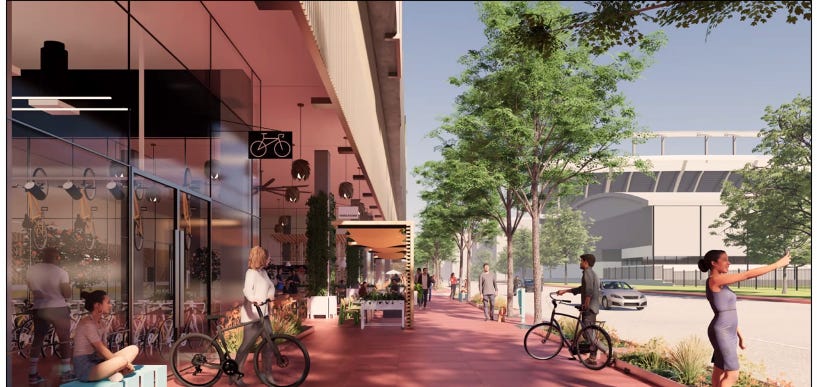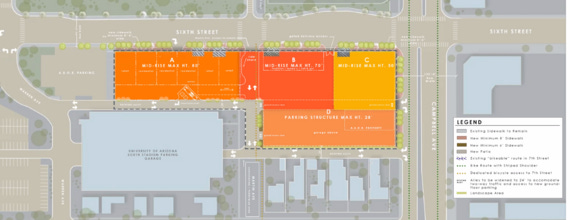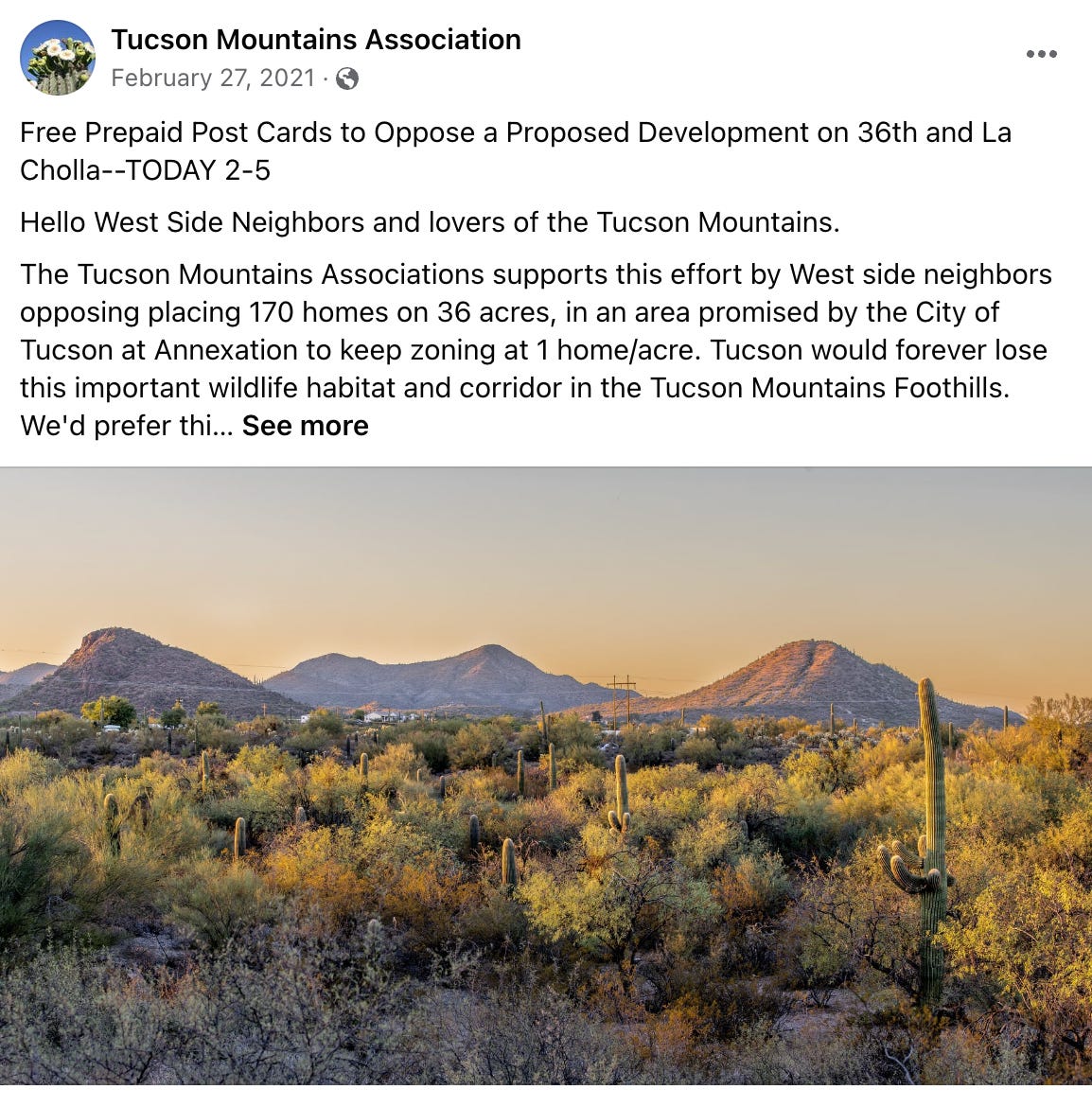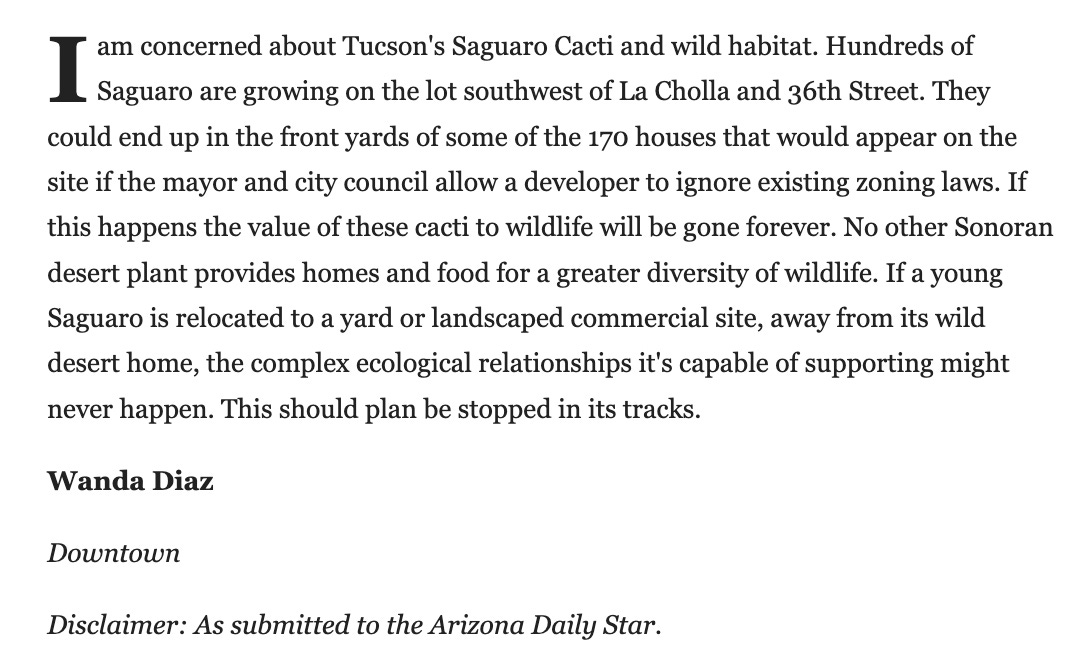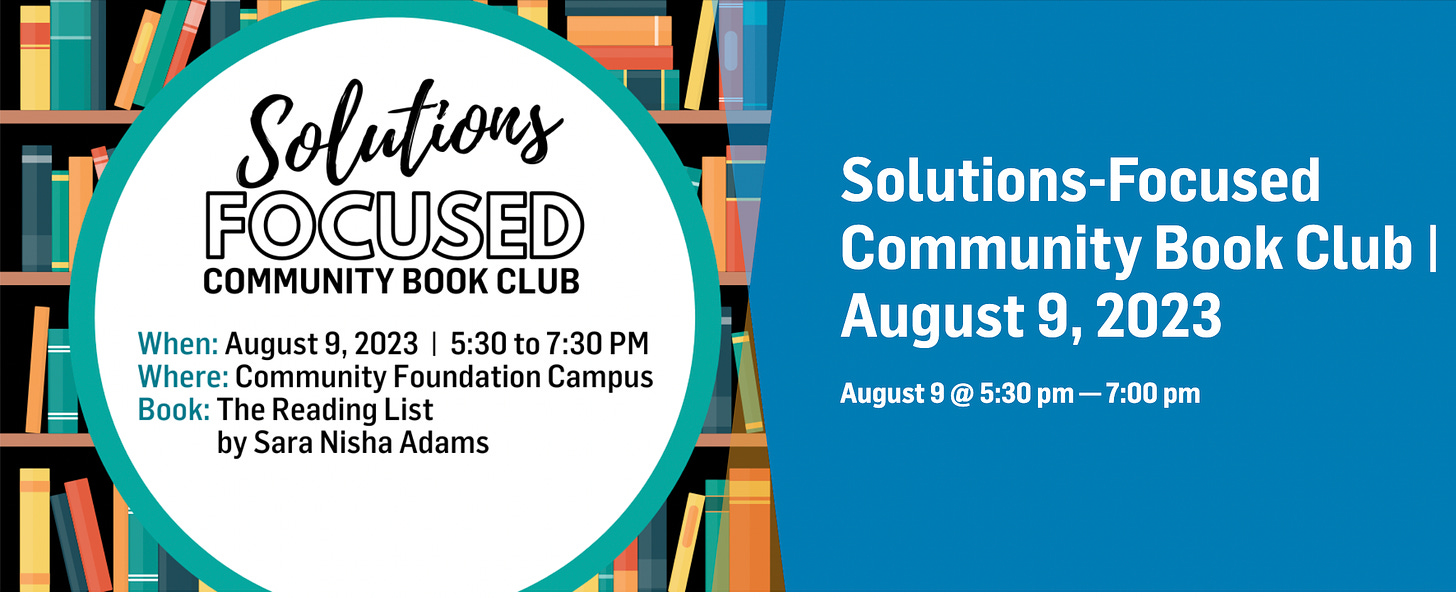The Daily Agenda: Affordable housing hits a roadblock
Creating affordable options is not so easy ... Pima County attorney to be deposed ... Bonding over books.
Creating new affordable housing in Tucson is proving to be more difficult than city officials hoped, as developers say they’re unable to secure funding for projects that include lower-rent units.
Now, builders are hoping to simply pay the city a fee that it can redirect toward subsidizing otherwise unaffordable housing, instead of building affordable housing into their new developments.
City officials are grappling with the question in at least two projects: 137-home development located at South La Cholla Boulevard and West 36ᵗʰ Street — and a student housing apartments, commercial space and parking on East 6ᵗʰ Street and North Campbell Avenue.
While the 36ᵗʰ and La Cholla project has already been approved by Tucson’s mayor and council, the property at 6ᵗʰ and Campbell is still in the rezoning process.
The city council rejected the development at 6th and Campbell last year, as it didn’t include any affordable housing units. That hasn’t changed — the developer says he can’t get funding for a project with below-market rate units.
But the developer, Scott Cummings Properties, is offering up a new plan: For every unit built, it’ll donate a set amount to the city’s affordable housing department. That money would likely be set aside for down-payment assistance, according to Ward 6 Councilman Steve Kozachik.
The Zoning Examiner is now re-considering the project under the new proposal. On Thursday night, the public hearing for the development was continued for the second time, as developers work to finalize details about the property and agreements with nearby neighborhoods.
But in a city that’s increasingly devoid of affordable housing, help with a down payment on unaffordable housing isn’t much help at all.
Scott Cummings Properties isn’t the only developer struggling to find funding for affordable housing and looking to the direct-donation model to satisfy a city council that has attempted to prioritize building affordable housing.
Last year, the city council approved a housing development near South La Cholla Boulevard and West 36ᵗʰ Street that would bring 137 new homes to Tucson’s west side.1 The area is a largely untouched piece of desert. Locals have protested the new development for years, saying it would disrupt wildlife and change the character of the neighborhood.
When the council approved the rezoning, the developer committed building 14 affordable housing units, according to Kozachik, who was one of two dissenting votes. Councilman Kevin Dahl also voted against the plan.
Even though the plan was approved for 137 new homes, a recent pre-development package later sent to the city identified only 114 lots, Kozachik wrote in a recent edition of his newsletter. He said he pushed the issue and found that the development no longer includes any affordable units.
And it’s not even the developer’s fault, necessarily, Kozachik said.
“What we’re finding is lending institutions don’t want to risk lower rents, so the La Cholla/36th development will be at all market rate,” Kozachik wrote.
The developer, city staff and Ward 1 office negotiated a change that would allow for the 14 units to be “dispersed throughout the community and not concentrated in one area.” The developer also has the choice to develop the 14 lots as affordable housing or transfer the lots to the city or the “city’s designee.”
But now, the developer is trying to negotiate another change: Instead of providing 14 lots, it wants to donate a set amount from each unit sold to the city’s housing department funds, just like the developers at the 6th and Campbell project want. That change would likely require approval from the city council, Kozachik wrote in his newsletter. It’s unclear when that will happen.
For now, the property at 36ᵗʰ and La Cholla remains untouched. There’s no housing, affordable or otherwise.
It’s great that these developers are willing to pay into the city’s affordable housing fund, and a down payment assistance program is a step in the right direction for many potential homeowners or renters.
But if the money is used for down payments, what happens when their rent or mortgage is still more than they can afford?
And if banks truly won’t fund local projects that set aside units at below-market rate, it’s going to be a tough road forward to create housing that is truly affordable.
The Tucson Zoning Examiner will revisit the 6ᵗʰ and Campbell property on July 20. If it’s approved, the Tucson City Council will vote on the development in an upcoming meeting.
Next up in rezoning: The Zoning Examiner will consider rezoning six acres near the intersection of Rosemont and Broadway to allow for the construction of a gated apartment building with 222 units, including a “community room, pool, outdoor garden area, solar-ready covered parking spaces, and electric vehicle charging stations,” at it’s July 20 public meeting.
Deposing the county attorney: A federal judge ordered Pima County Attorney Laura Conover to be deposed regarding the case of Louis Taylor, KVOA’s Lupita Murillo reports. Taylor spent 40 years in prison, but he was released when new technology indicated the fire, which killed 29 people in 1970, wasn’t arson. The remaining question is whether Taylor will be officially exonerated. Conover initially seemed to agree Taylor could be innocent, but then backtracked.
“It's important because it allows us to depose the one person who truly knows why in May of 2022 she reviewed the evidence and decided there was clear and convincing evidence of innocence,” Taylor’s attorney, Timothy Stackhouse, told Murillo.
Banning puppy mills: The Pima County Supervisors plan to discuss next month whether to ask the state Legislature to ban “puppy mills.”
Water woes: Pima County supervisors voted 3-1 Tuesday to send a letter to the Arizona Department of Water Resources asking the agency to expedite a study of the Tucson area’s groundwater supply to see if it’s large enough to support the next 100 years of expected subdivision development, the Daily Star’s Tony Davis reports. Republican Supervisor Steve Christy was opposed and Democrat Sharon Bronson wasn’t present for the vote.
“I don’t want the Arizona DWR expediting any plans regarding a groundwater model. We have the capacity to figure that out on our own,” Christy said.
Weigh in on water: The city is seeking feedback about Tucson Water’s One Water 2100 draft plan, an update of the city utility’s water management plan. The One Water plan was created by listening to about 4,000 responses from stakeholder workshops, one-on-one interviews, comment cards, social media and surveys. Comments, which will be incorporated into the next draft plan that goes before the mayor and council in September, will be accepted through the One Water website until Friday, July 21.
Raspados help: Tucson-based journalist Ruxandra Guidi writes in The Atlantic about how Tucsonans escape the oppressive heat by dipping into public pools, supermarkets, movie theaters and museums and by downing raspados. But she worries that as the entire world heats up, that won’t be enough someday.
“When my mind goes to those difficult places, I’m prone to magical thinking. I tell myself that those of us who love the desert will figure things out together. The local government will step in. We still have time,” she writes.
Road improvements continue in Marana: Construction has begun on Phase 2 of Marana’s Tangerine Road Corridor, according to Tucson Local Media’s Veronica Kuffel. The project is part of the town’s Capital Improvement Projects Plan, with the final portion estimated to be completed in October 2025.
We want the Tucson Agenda to be sustainable and thriving way before this project is complete. Help us get there!
Caitlin has teamed up with the Community Foundation for Southern Arizona and local nonprofit the Tucson Tome Gnome to host a solutions-focused community book club that aims to bring together Tucsonans from all walks of life.
We had a fantastic turnout for our first meeting in June. Attendees talked about making our community better for everyone and building momentum to create positive change.
Our second meeting is Wednesday, August 9 from 5:30-7 p.m. at the CFSA campus (5049 E. Broadway Blvd., Suite 201). We’ll be talking about Sara Nisha Adams’ “The Reading List.”
The event is free to attend and delicious refreshments will be provided, but advanced registration is required. Learn more about the book club and RSVP by clicking the button below.
The development has also become a point of contention for voters in the Ward 1 Democratic primary race between incumbent Lane Santa Cruz, who voted to approve it, and challenger Miguel Ortega, who apposes the development.




